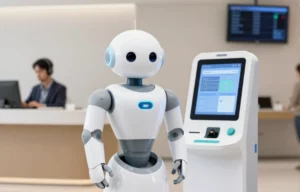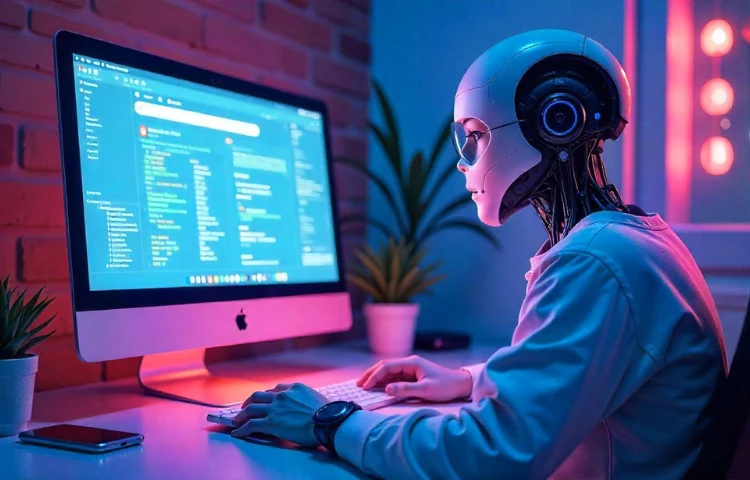

Prefer to listen instead? Here’s the podcast version of this article.
Artificial intelligence continues to redefine industries, spark ethical debates, and push the boundaries of what’s technologically possible. From groundbreaking announcements by tech giants to emerging concerns around security and privacy, recent developments are setting the stage for a transformative future. This roundup captures the most compelling stories shaping the AI landscape right now—spanning innovations in search technology, autonomous coding, hardware design, and regulatory concerns.
At Google I/O 2025, the tech giant unveiled transformative updates to its AI offerings. The new “AI Mode” in Google Search, powered by Gemini 2.5, shifts search results from static links to dynamic, conversational responses. This change aims to provide users with more intuitive and comprehensive answers. Additionally, Google introduced tools like Veo 3 for video generation and Jules, an AI-assisted coding agent, enhancing its suite of AI-driven applications. [AP News]
Anthropic’s latest AI model, Claude 4, has set new benchmarks in autonomous coding. Demonstrating the ability to refactor code continuously for seven hours, Claude 4 outperforms competitors like Google’s Gemini in coding tasks. This advancement underscores the growing capabilities of AI in software development. [Ars Technica]
In a significant move, OpenAI acquired Jony Ive’s design firm, io, for $6.4 billion. This partnership aims to create innovative AI hardware devices that seamlessly integrate into daily life. The envisioned products are expected to be unobtrusive yet deeply functional, marking a new era in AI-human interaction. [The Guardian]
A recent study by Dimensional Research and SailPoint highlights growing security concerns around AI agents. Findings reveal that 23% of IT professionals have witnessed AI bots being deceived into revealing sensitive information. Despite these risks, 98% of companies plan to expand their use of AI agents, emphasizing the need for robust governance and oversight. [The Times]
Ahead of its June 5 launch, OnePlus announced the OnePlus 13s smartphone, featuring a new AI platform and a customizable “Plus Key.” This dedicated button allows users to assign various functions, enhancing personalization and productivity. The device also integrates Google’s Gemini AI, reflecting OnePlus’s commitment to embedding AI deeply into its ecosystem. [The Times of India]
OpenAI CEO Sam Altman introduced the Orb, a biometric device developed by Tools for Humanity. The Orb scans users’ irises to create a unique “World ID,” aiming to distinguish humans from AI entities online. While the project aspires to support decentralized governance and potentially enable universal basic income, it faces challenges related to privacy and user adoption. [Time]
As AI technologies become more deeply embedded in our digital and physical environments, the implications extend far beyond innovation alone. These advancements raise important questions about security, user experience, and the ethics of design. Staying informed and engaged is essential—not just for technologists, but for anyone navigating the evolving relationship between humans and intelligent systems.
WEBINAR